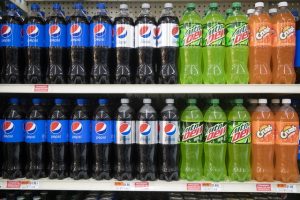By Daniel Beekman
May 31, 2017
The Seattle Times

Under a new version of the city’s proposal, diet drinks would not be taxed, in addition to other changes. A final vote by the full council likely will be scheduled for Monday.
Seattle City Council members moved a proposed soda tax Wednesday toward a final vote — and amended it to exclude diet drinks.
Mayor Ed Murray sent legislation to the council in April calling for a tax of 1.75 cents per ounce on distributors of sweetened beverages, including sugary and diet soft drinks, among others.
Under the new version of the proposed tax, diet drinks would not be taxed, small manufacturers would be exempted and medium-sized manufacturers would pay a reduced rate.
The amended plan would raise about $8 million less annually than Murray’s plan, according to city estimates.
The council’s finance committee made the changes Wednesday before voting 5-2 to move the ordinance forward.
“For me, the main object of this legislation is to reduce the consumption of this unhealthy product,” Councilmember Mike O’Brien said.
Councilmembers Lisa Herbold and Kshama Sawant cast the dissenting votes, while Councilmembers Tim Burgess and M. Lorena González were behind the major changes.
Herbold proposed lowering the tax rate to 1 cent per ounce and keeping diet drinks in the tax, but her amendments were rejected by the committee.
Councilmember Rob Johnson proposed taxing syrups and powders based on their dry weight rather than their weight once mixed into drinks, saying that would be simpler. His amendment also was rejected.
Herbold and Sawant said they couldn’t support a tax that would disproportionately burden low-income people and people of color. Herbold called the existing proposal “unfairly regressive” and warned a rate set too high could expose the tax to repeal via citizen ballot measure.
A final vote by the full council likely will be scheduled for Monday.
Many health advocates are supporting the tax, while soft-drink companies, some business owners and unions with workers in the beverage industry oppose it.
The Martin Luther King County Labor Council and the Seattle Metropolitan Chamber of Commerce issued a joint statement Wednesday against the tax, saying it would harm the local economy.
Revenue from the tax would be used by the city to support healthful eating and education.
Seattle leaders have been having trouble agreeing whether to tax diet drinks.
Diet drinks weren’t included in Murray’s initial plan. The science on sugary drinks being unhealthful is solid, but evidence of artificially sweetened drinks being harmful is less clear.
The mayor added diet drinks to his plan after a racial-equity analysis showed their popularity among wealthy people and white people. And now council members have taken them back out.
In pushing for diet drinks to be excluded from the tax, Burgess pointed to unclear health findings on artificial sweeteners and to concerns about the tax leading to job losses.
“Leaving diet drinks untaxed gives consumers an alternative,” he said. “And I’m concerned about what we’ve heard from labor.”
Taxing sugary and diet drinks at 1.75 cents per ounce, as the mayor proposed, would initially raise about $23 million annually, while taxing only sugary drinks at that rate would raise about $15 million, according to estimates Herbold obtained from the city’s budget office.
Herbold argued for taxing sugary and diet drinks at 1 cent per ounce in order to raise 15.5 million annually.